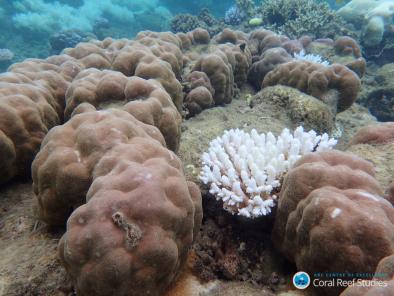Science Source
Climate Change: A Deadly Threat to Coral Reefs
- The longest global coral bleaching event on record, ongoing since 2014, has led to widespread bleaching and mortality of reefs as pools of unusually warm water move around the globe.
- Last year the Great Barrier Reef experienced its worst bleaching event ever. The pristine reefs in the north (Port Douglas to Papua New Guinea) were the most badly affected, with mortality of two-thirds of coral in this region.
- While the El Niño has waned, bleaching on the Great Barrier Reef appeared again in 2017, fuelled by climate change.
- Rising sea surface temperatures, driven by climate change, are increasing the frequency and severity of mass coral bleaching events and reducing the opportunities for corals to recover.
- It was virtually impossible for the extreme ocean temperatures that led to coral bleaching along the Great Barrier Reef in 2016 to have occurred without climate change.
Related Content
Headline

Apr 18, 2018 | Washington Post
Global warming has changed the Great Barrier Reef ‘forever,’ scientists say
Science Source
| World Weather Attribution
Great Barrier Reef Bleaching, March 2016
Science Source
| Proceedings of the National Academy of Sciences
Ocean acidification affects coral growth by reducing skeletal density
Nathaniel R. Mollica, Weifu Guo, Anne L. Cohen et al
Science Source
| PLOS ONE
Coral physiology and microbiome dynamics under combined warming and ocean acidification
Andréa G. Grottoli, Paula Dalcin Martins, Michael J. Wilkins et al


